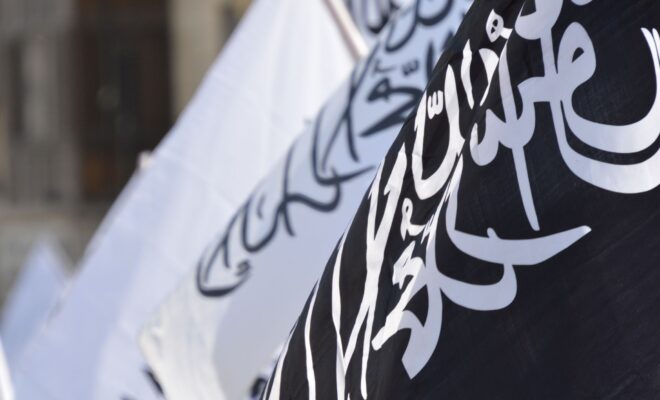Restoring the Khilafah: A Mission for Every Believer

The effort to establish an Islamic system of governance—one that rules by what Allah (swt) has revealed—in the Muslim lands is not just an abstract ideal; it is a responsibility that falls on the shoulders of every Muslim. While this task starts as a communal obligation (fard kifayah), the current state of disunity in the Ummah has made it a personal duty (fard ‘ayn) for all of us. When something as vital as the re-establishment of an Islamic way of life, manifested by the Khilafah system of governance, is neglected, the burden shifts to every individual to act.
The Proof of the Obligation
This responsibility is not open to debate—it is firmly grounded in the Qur’an and Sunnah. Denying the obligation of ruling by what Allah (swt) has revealed is tantamount to disbelief (kufr), and neglecting it is an act of disobedience to Allah (swt) and His Messenger (saw). Many Qur’anic verses emphasize the importance of adhering to Shariah and rejecting systems that contradict it:
“As to the thief, male or female, cut off their hands as a recompense for what they earned.” (Qur’an 5:38)
“The fornicatress and the fornicator—flog each of them with a hundred stripes.” (Qur’an 24:2)
“Follow what has been revealed to you from your Lord, and do not follow protectors other than Him.” (Qur’an 7:3)
“They wish to refer legislation to Taghut (false judges), while they were commanded to reject it.” (Qur’an 4:60)
“But no, by your Lord, they will not believe until they make you [O Muhammad] judge in their disputes and find no discomfort in themselves about your decisions and submit fully.” (Qur’an 4:65)
Without the Khilafah, most rulings of Shariah cannot be implemented, leaving the Ummah in collective disobedience to Allah (swt).
Scholars on the Oblgation of Khilafah
Imam al-Ghazali (rh) said “The obligation of appointing an imam (leader) is based on the consensus of the community… The imamate is necessary for the organization of the religion and the world.”
Imam al-Mawardi (rh) said “The establishment of the Imamate is obligatory… to ensure the proper implementation of the Shariah and the management of worldly affairs.”
Ibn Taymiyyah (rh) said “It is obligatory to know that the office in charge of commanding over the people is one of the greatest obligations of the religion. In fact, there is no establishment of the religion except by it.”
Maximum Effort is Required
Every Muslim is commanded to work toward this goal with their full capacity. This is not an optional or casual endeavor; it demands our utmost effort. Allah (swt) says:
“So fear Allah as much as you are able.” (Qur’an 64:16)
“Allah does not burden a soul beyond its capacity.” (Qur’an 2:286)
These verses emphasize that Allah (swt) expects us to give our all, not just a partial or half-hearted attempt. The Prophet (saw) also said:
“Whoever among you sees an evil, let him change it with his hand. If he cannot, then with his tongue. If he cannot, then with his heart—and that is the weakest level of faith.” (Sahih Muslim)
When faced with widespread injustices, Muslims cannot afford to give anything less than their full effort.
Misconceptions About Obligation
Some argue, “We’re not able to topple the tyrannical governments in the Muslim Lands in order establish a Caliphate, so we’re not obligated to try.” This argument reflects a misunderstanding of the task. Working toward the Caliphate is a continuous process — it does not mean immediate success but persistent preparation and effort. The obligation is global, encompassing the entire Ummah. Claims of incapacity often stem from laziness or the influence of Western concepts that discourage collective Islamic efforts.
Scholars Who Downplay the Work for the Khilafah
Unfortunately, some scholars we look up to in our community diminish the obligation of working for the re-establishment of the Khilafah. Some align themselves with the interests of the ruling systems in the Muslim world. These scholars act as echoes of those in power, repeating official narratives rather than standing for the truth.
Worse still, others have shifted their focus to building personal fame and financial gain, using social media platforms to monetize their influence. Their efforts often revolve around creating content that pleases the masses or avoids controversy, ensuring their revenue streams remain intact, rather than addressing the pressing needs of the Ummah. This contrasts starkly with the selfless nature of the work for the Khilafah, which demands sacrifice, sincerity, and devotion to Allah’s (swt) commands. True work for the Khilafah demands confronting oppressive systems, speaking truth to power, and enduring hardship for the sake of Allah (swt). It offers no worldly luxuries or rewards, only the promise of fulfilling a divine obligation and contributing to the unity and the Islamic revival of the Ummah.
Muslims in Canada: A Shared Responsibility
Living in Canada or the West does not exempt us from this responsibility. The idea that this obligation only applies to Muslims in Muslim-majority countries is false and contradicts the global nature of Islam. Allah (swt) says:
“And cooperate in righteousness and piety, but do not cooperate in sin and aggression.” (Qur’an 5:2)
The Prophet (saw) said:
“The believers, in their mutual kindness, compassion, and solidarity, are like one body. If one part of it feels pain, the rest of the body suffers in sleeplessness and fever.” (Sahih Muslim)
Muslims in Canada are part of this global body, and the duty to work for the unity and the Islamic revival of the Ummah applies equally to them.
The Prophet (saw) also said:
“The Deen is sincerity.” When asked, “To whom, O Messenger of Allah?” He replied, “To Allah, His Book, His Messenger, the leaders of the Muslims, and their common folk.” (Sahih Muslim)
Every Muslim, regardless of location, has a role in the revival of Islamic governance. Being in the West is not an excuse to sit on the sidelines—it is a reason to work harder, knowing you are part of a global Ummah with shared responsibilities.
Prioritizing Duties
Balancing daily obligations, such as earning a livelihood, with this mission requires prioritization based on Islamic principles. While earning a basic income is necessary, it should not overshadow the duty to contribute to the Islamic cause. Pursuing additional luxuries at the expense of this responsibility is not justified.
Muslims must find ways to integrate their efforts for the Ummah within their everyday lives, ensuring they remain committed to this critical duty.
The Urgency of Action
The work to re-establish the Khilafah is not something to be postponed. The Prophet (saw) said:
“Whoever dies without having pledged allegiance dies the death of ignorance.” (Sahih Muslim)
The delay of this effort, whether due to studies, projects, or personal excuses, is unacceptable. Allah’s (swt) commands, including those related to governance, are meant to be acted upon immediately. The Khilafah is not just a political system—it is the shield that protects the Muslim Ummah. The Prophet (saw) said:
“The Imam is a shield, behind whom the Muslims fight and by whom they are protected.” (Sahih al-Bukhari)
This shield ensures the defense of Muslim lands, the preservation of their honor, and the safeguarding of their lives. In its absence, the blood of Muslims has been spilled without consequence: the Zionist genocide of the people of Palestine, the concentration camps oppressing our Uighur brothers and sisters, the massacres in Syria, Yemen, Sudan and Kashmir. The urgency of re-establishing the Khilafah in the Muslim lands lies in its legislated role as the protector of the Ummah, unifying Muslims under a single leadership and implementing the laws of Allah (swt). Without it, the Ummah remains fragmented, vulnerable to external aggression and internal divisions. The return of the Khilafah is not a matter of convenience but an urgent obligation to restore the dignity, justice, and security of the Muslim lands. Delaying this work is to allow the suffering of Muslims to continue unchecked.
Being Serious in Fulfilling this Obligation
As Muslims, we are called to live with purpose and seriousness, not to waste our lives in trivial pursuits or be consumed by the distractions of a comedic, entertainment-driven culture. Allah (swt) reminds us of our higher purpose:
“Did you think that We created you without purpose and that you would not be returned to Us?” (Qur’an 23:115).
Life is too precious and our responsibilities too great for us to lose ourselves in frivolity or to indulge in a mindset of perpetual amusement. The Prophet (saw) warned against this, saying:
“The wise person is the one who holds themselves accountable and works for what comes after death, while the incapable one follows their desires and places false hope in Allah.” (Tirmidhi)
Key Steps Toward Revival
Education and awareness are the foundation of this effort. Muslims need to understand the importance of this obligation and feel inspired to act with patience and dedication. It is about building awareness, fostering unity, and reigniting the passion for an Islamic future. Allah (swt) says:
“And say, ‘Work, for Allah will see your deeds, and so will His Messenger and the believers.'” (Qur’an 9:105)
Muslims in Canada, with their unique skills and global perspectives, have an essential role to play in this effort. May Allah (swt) guide us all to fulfill our responsibilities and hasten the return of His Shariah to govern through the return of the Khilafah.









